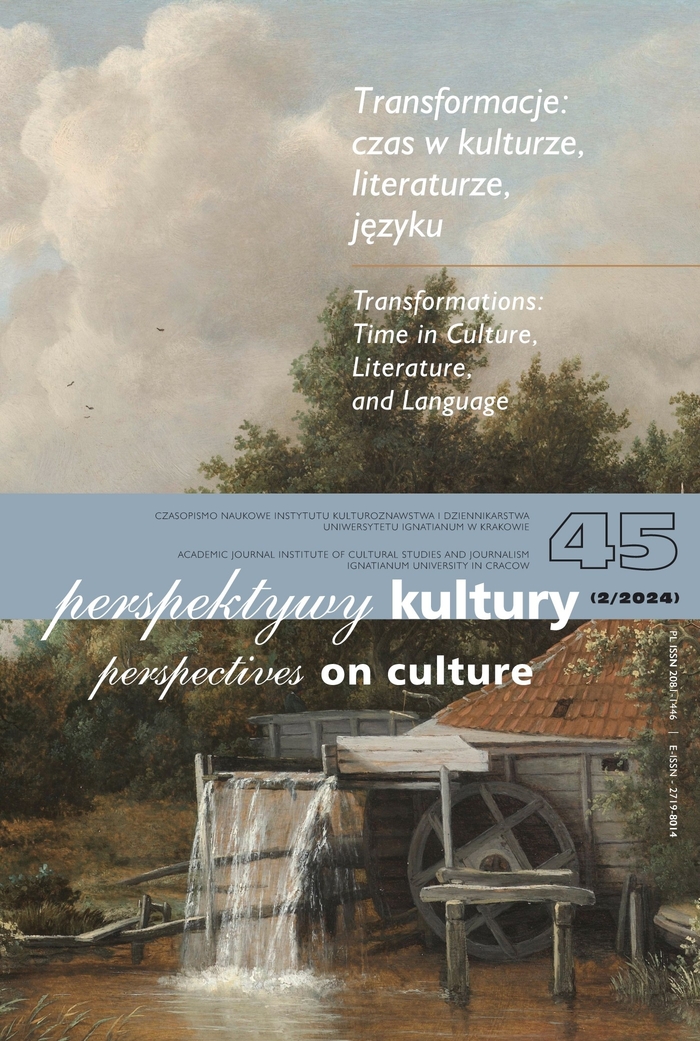From the Fall of Babel Tower to the Global Rise of English
Language and Diachronic Transformations
Abstract
This paper focuses on English as the primary lingua franca of the globalised world, characterised by the interconnectedness and interdependence of people, nations, and cultures. It seeks to present linguistic transformation from various perspectives and to better understand the current challenges and threats to this transformation process as well as opportunities for its development. The aim of the paper is threefold: (a) to outline the atemporal theme of language as mankind’s greatest boon, recurring in various mythologies and religions; (b) to trace the spread of English across the world and to demonstrate its path to global linguistic hegemony; and (c) to shed light on how English is utilised in cooperation and collective action and on how it can be used for manipulation, deception, and control by knowledge-based societies today.
References
Baudouin de Courtenay, J. (1908). O języku pomocniczym międzynarodowym. Kraków: Drukarnia Literacka
Baugh, A. C., Cable, T. (2013). History of the English Language. London & New York: Routledge.
Balcewicz, J. (2019). Społeczeństwo informacyjne w czasach cyfrowej rewolucji – o zjawisku bańki informacyjnej i jego następstwach, NASK Cyber POLICY, Retrieved from: https://cyberpolicy.nask.pl/spoleczenstwo-informacyjne-w-czasach-cyfrowej-rewolucji-o-zjawisku-banki-informacyjnej-i-jego-nastepstwach/ (15/09/2023).
Behera, A. K., Panda, S. S. (2012). Global language: English? International Journal of English and Education, 1(1), 43–52.
Bell, D. (1973). The Coming of Post-Industrial Society: A Venture in Social Forecasting. Basic Books, New York.
Cierpich, A. (2019). Homo loquens: odwieczne pragnienie (językowej) jedności. In J. Skolmowska et al. (Eds.), Sapere aude: antologia tekstów różnych do czytania. Tarnów: I LO im. K. Brodzińskiego w Tarnowie.
Crystal, D. (2003). English as a Global Language. Cambridge: Cambridge University Press.
Doane, T. W. (1882). Bible Myths and Their Parallels in Other Religions. Health Research Books. Retrieved from: https://archive.org/details/biblemythsandthe00doanuoft/page/32/mode/2up?ref=ol&view=theater (15/09/2023).
Everett, D. (2013). Language: The Cultural Tool. Croydon: Profile Books.
The Tower of Babel (1979). Genesis 11:1–9, Holy Bible, New King James Version, Thomas Nelson. Retrieved from: https://www.bible.com/bible/114/GEN.11.NKJV (15/09/2023).
Graddol, D. (1997). The Future of English? London: The British Council.
Jurkowski, M. (1986). Od wieży Babel do języka kosmitów: o językach sztucznych, uniwersalnych i międzynarodowych. Białystok: Krajowa Agencja Wydawnicza.
Kachru, B. (1985). Standards, codification and sociolinguistic realism: The English language in the outer circle. In R. Quirk & H. G. Widdowson (Eds.), English in the world: Teaching and learning the language and literatures (pp. 11–30). Cambridge: Cambridge University Press.
Kopecka-Piech, K., Łódzki, B. (Eds.) (2022). The Covid-19 Pandemic as a Challenge for Media and Communication Studies. Routledge.
Le Goof, J. (1995). Series Editor's Preface in: Eco U. 1995. The Search for the Perfect Language. Oxford UK, Cambridge USA: Blackwell.
Lozanova, G. (2007). Confusion of Tongues and Origin of Nations and Religions in Islamic Tradition. Slavia Meridionalis, (7), 11–30.
Jenkins, J. (2009). World Englishes: a resource book for students. London & New York: Routledge.
Machlup, F. (1962). The Production and Distribution of Knowledge in the United States.
Princeton: Princeton University Press.
Montgomery, S. L. (2013) Does Science Need a Global Language? English and the Future of Research. Chicago & London: University of Chicago Press.
Mufwene, S. S. (2023). Lingua franca. Encyclopedia Britannica. Retrieved from: https://www.britannica.com/topic/lingua-franca (22/09/2023).
Northrup, D. (2013). How English Became the Global Language. New York: Palgrave Macmillan.
Pennycook, A. (2002). English and the Discourses of Colonialism. London & New York: Routledge.
Quirk, R., Widdowson H. G. (Eds.) (1985). English in the world: Teaching and learning the language and literatures. Cambridge: Cambridge University Press.
Sapir, E. (1921). Language: An Introduction to the Study of Speech. New York: Harcourt, Brace and Company.
Statista (2023) The most spoken languages worldwide in 2023. Retrieved from: https://www.statista.com/statistics/266808/the-most-spoken-languages-worldwide/ (2/10/2023).
Swales, J. M. (1997). English as Tyrannosaurus rex. World Englishes, 16 (3), pp. 373–382.
United Nations (2023). What are the official languages of the United Nations? Retrieved from: https://ask.un.org/faq/14463 (22/09/2023).
Van Parijs, P. (2011). Linguistic Justice for Europe and for the World. New York: Oxford University Press.
Yule, G. (2014). The Study of Language. New York: Cambridge University Press.
Żelazny, R. (2015). Information society and knowledge economy – essence and key relationships. Journal of Economics and Management, 20 (2), pp. 5–22.
Copyright (c) 2024 Perspectives on Culture

This work is licensed under a Creative Commons Attribution-NoDerivatives 4.0 International License.
Autor, zgłaszając swój artykuł, wyraża zgodę na korzystanie przez Wydawnictwo Uniwersystet Ignatianum z utworu na następujących polach eksploatacji:
- utrwalania utworu w formie papierowej, a także na nośniku cyfrowym lub magnetycznym;
- zwielokrotnienia utworu dowolną techniką, bez ograniczenia ilości wydań i liczby egzemplarzy;
- rozpowszechniania utworu i jego zwielokrotnionych egzemplarzy na jakimkolwiek nośniku, w tym wprowadzenia do obrotu, sprzedaży, użyczenia, najmu;
- wprowadzenia utworu do pamięci komputera;
- rozpowszechniania utworu w sieciach informatycznych, w tym w sieci Internet;
- publicznego wykonania, wystawienia, wyświetlenia, odtworzenia oraz nadawania i reemitowania, a także publicznego udostępniania utworu w taki sposób, aby każdy mógł mieć do niego dostęp w miejscu i czasie przez siebie wybranym.
Wydawca zobowiązuje się szanować osobiste prawa autorskie do utworu.





